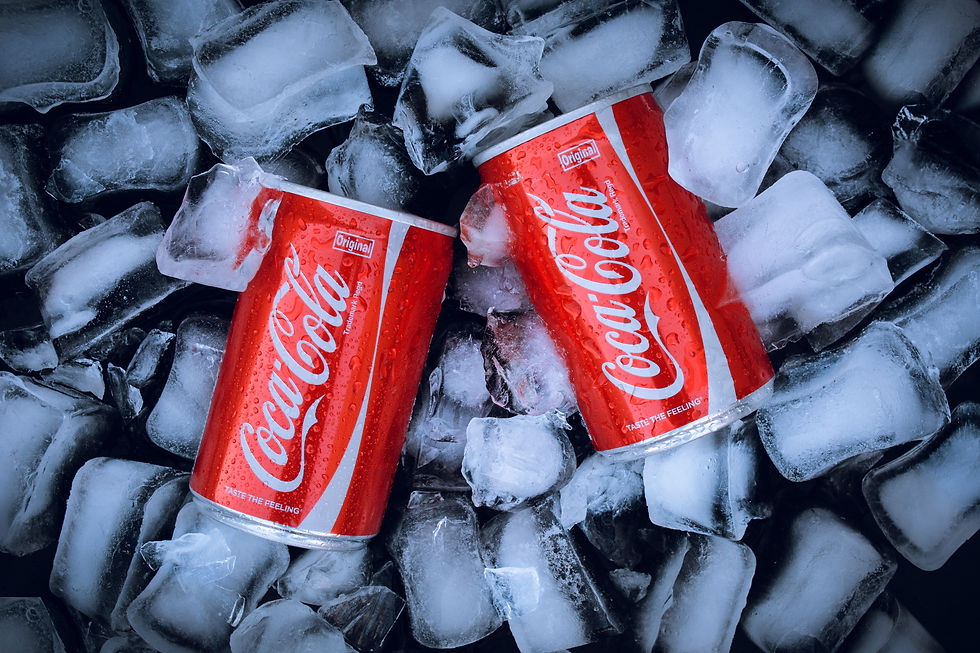
In the annals of marketing history, few blunders stand out as prominently as the New Coke debacle of 1985. This pivotal event, orchestrated by the Coca-Cola Company in a bid to reinvigorate its flagship product, remains a cautionary tale for marketers worldwide. Decades later, the story of New Coke continues to offer valuable insights into consumer behaviour, brand loyalty, and the delicate balance between tradition and innovation.
Background: A Battle of Titans
The rivalry between Coca-Cola and PepsiCo has long been a hallmark of the soft drink industry. In the early 1980s, Pepsi began gaining ground on Coca-Cola, positioning itself as the choice of a new generation through aggressive marketing campaigns and celebrity endorsements. Concerned by this shifting landscape, Coca-Cola found itself facing a formidable opponent in Pepsi's relentless pursuit of market dominance.
The Birth of New Coke
Determined to regain its competitive edge, Coca-Cola embarked on a bold strategy: reformulating its iconic beverage to better align with contemporary tastes. After years of development and taste testing, the company unveiled "New Coke" on April 23, 1985. The new formula boasted a sweeter taste profile, aiming to appeal to younger consumers who were increasingly gravitating towards Pepsi's bolder flavour.
Accompanying the product launch was a massive marketing blitz, heralding New Coke as a triumph of modernity and flavour innovation. Coca-Cola's executives were confident that the new formulation would not only attract new customers but also reinvigorate the brand's loyal fan base.
The Backlash: Consumer Outcry
However, the response from the public was far from what Coca-Cola had anticipated. Lifelong Coca-Cola drinkers, accustomed to the familiar taste of their beloved beverage, felt betrayed by the abrupt change. Flooded with letters, calls, and protests, Coca-Cola headquarters found itself besieged by irate consumers demanding the return of the original formula.
The backlash against New Coke was swift and widespread, reverberating across the country and capturing headlines around the world. What had been intended as a bold move to reclaim market share quickly devolved into a public relations nightmare for Coca-Cola.
A Hasty Retreat: The Reintroduction of Coca-Cola Classic
Realizing the gravity of the situation, Coca-Cola swiftly reversed course. On July 11, 1985, the company announced the return of the original Coca-Cola formula under the moniker "Coca-Cola Classic." The decision to resurrect the classic beverage was not merely an acknowledgement of consumer sentiment but a testament to the enduring power of brand loyalty.
The reintroduction of Coca-Cola Classic marked a turning point in the New Coke saga, signalling Coca-Cola's willingness to listen to its customers and rectify its misstep. While New Coke remained on the market for a time, it ultimately faded into obscurity as Coca-Cola Classic reclaimed its position as the company's flagship product.
Legacy and Lessons Learned
The New Coke fiasco left an indelible mark on Coca-Cola's history, underscoring the importance of respecting consumer preferences and the sanctity of brand heritage. It served as a stark reminder that while innovation is essential for staying relevant, it must never come at the expense of alienating loyal customers.
In the aftermath of the debacle, Coca-Cola emerged stronger, reaffirming its position as an iconic American brand. The episode catalyzed a renewed focus on product innovation and marketing strategies that resonate with consumers while honouring the company's rich heritage.
Conclusion: A Tale of Resilience and Redemption
The New Coke debacle remains a pivotal chapter in the annals of marketing lore—a cautionary tale that continues to inform and inspire marketers to this day. Through its missteps and subsequent recovery, Coca-Cola demonstrated the resilience of a brand deeply ingrained in the fabric of global culture. As businesses navigate the ever-evolving landscape of consumer preferences and market dynamics, the lessons gleaned from the New Coke fiasco serve as a beacon, guiding them towards sustainable growth and enduring success.

Comments